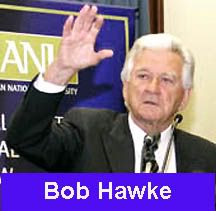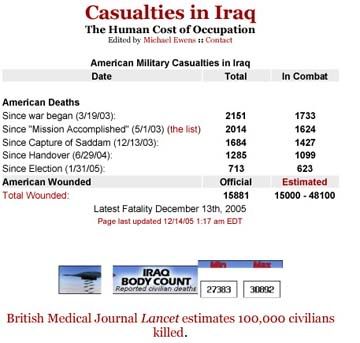"..Nowhere have I experienced more genuine warmth and such a feeling of welcome. When you come to Kuala Lumpur, you are made to feel very special.
The gentleness and politeness of these people is a phenomenon that doesn't exist, to my knowledge, anywhere in the U.S.
Malaysia is the virtual incarnation of religious and ethnic diversity, a veritable melting pot of racial and devotional groups that somehow manage to live in relative harmony far beyond anything I have seen even in that paradigmatic paragon of multiculturalism, California.
Here is an "Islamic" country where a gigantic Christmas tree sits in the lobby of the hotel I'm staying at, and the café waiters in the plaza a few blocks away are dressed like Santa's elves.
Here is a city where the nightlife puts San Francisco's to shame.
The food is fabulous: Malay (spicy, somewhat Thai-like), Arab (there's a great place right off Bukit Bintang), Chinese (you haven't lived until you've sampled the pleasures of Kuala Lumpur's Chinatown), and too many more to go into here.
The place is a gastrointestinal paradise!"
-Justin Raimondo
Read here original article by Justin Raimondo in "Behind the Headlines"
by
Justin Raimondo
 (Justin Raimondo is the editorial director of Antiwar.com. He is the author of An Enemy of the State: The Life of Murray N. Rothbard (Prometheus Books, 2000). He is also the author of Reclaiming the American Right: The Lost Legacy of the Conservative Movement (with an Introduction by Patrick J. Buchanan), (Center for Libertarian Studies, 1993), and Into the Bosnian Quagmire: The Case Against U.S. Intervention in the Balkans (1996). He is a contributing editor for The American Conservative, a Senior Fellow at the Randolph Bourne Institute, and an Adjunct Scholar with the Ludwig von Mises Institute, and writes frequently for Chronicles: A Magazine of American Culture.)
(Justin Raimondo is the editorial director of Antiwar.com. He is the author of An Enemy of the State: The Life of Murray N. Rothbard (Prometheus Books, 2000). He is also the author of Reclaiming the American Right: The Lost Legacy of the Conservative Movement (with an Introduction by Patrick J. Buchanan), (Center for Libertarian Studies, 1993), and Into the Bosnian Quagmire: The Case Against U.S. Intervention in the Balkans (1996). He is a contributing editor for The American Conservative, a Senior Fellow at the Randolph Bourne Institute, and an Adjunct Scholar with the Ludwig von Mises Institute, and writes frequently for Chronicles: A Magazine of American Culture.)
December 23, 2005
To say that Malaysia is NOT what I imagined would be an understatement of epic proportions.
Situated just south of Thailand, north of Indonesia, and quite close to the equator, the country describes itself as officially "Islamic," and this, at least in the minds of most Americans, means a stultifying uniformity, a monolithic apparatus of cultural and all too often political repression.
It means women in burqas, gay people in hiding, and a society generally groaning under the weight of an enormous repression.
Therefore, when I was invited to attend the Perdana Global Peace Forum as a speaker, I was somewhat hesitant, to say the least: did I really want to venture forth into such a forbidding landscape?
So my initial answer was "no."
But after doing a little research, and in response to the urgings of Antiwar.com's webmaster, Eric Garris, I reconsidered. What, I reasoned, could possibly happen to me?
After all, I had lived in that most dangerous and forbidding realm, the New York City of pre-Giuliani days, where you were just as likely to be mugged as anything else, and in broad daylight, too. Yet I had lived to tell the tale.
So, I thought, what the heck – why not?
I am now well into my second week of staying in Kuala Lumpur, at the fabulous Crowne Plaza Hotel, and it is clearer than ever that my prejudices were not only mistaken – they were and are the exact opposite of the truth.
Malaysia is the virtual incarnation of religious and ethnic diversity, a veritable melting pot of racial and devotional groups that somehow manage to live in relative harmony far beyond anything I have seen even in that paradigmatic paragon of multiculturalism, California.
Malays, Chinese, Indians, Arabs, and a generous smattering of Anglo expats swarm the streets of Kuala Lumpur, the biggest city in the country: yes, there is a Muslim majority, but non-Muslims are not subject to sharia law.
Malay Muslims coexist with Chinese Catholics, and Buddhist priests roam the Bukhit Bintang plaza, begging, amidst crowds shopping for the latest fashions and punk rockers with pink hair stroll fearlessly down the street.
You never saw such diversity.
And that's just during the daytime.
At night....I'm getting ahead of myself.
Of course, I didn't come here for the nightlife: I came for the Perdana Peace Forum, which was favored with an impressive array of speakers:
-former Australian prime minister Bob Hawke,
-British MP George Galloway,
-former UN assistant secretary-general Denis Halliday,
-Pakistan-born Britain-based writer and filmmaker Tariq Ali,
-former UN assistant secretary-general Hans von Sponeck,
-Daniel Ellsberg, and
-anti-nuclear-arms activist and writer Helen Caldicott.
Representing the Malaysians were former prime minister Dr. Mahathir Mohamad, current Prime Minister Datuk Seri Abdullah Ahmad Badawi, and Deputy Prime Minister Datuk Seri Najib Tun Razak.
I had some concerns about former Prime Minister Mahathir, but then I read this Paul Krugman column and my fears were somewhat allayed.
Upon meeting Dr. Mahathir, whatever reservations remained were put completely to rest: the man seems to emanate benevolence and great gentleness, almost an aura of serenity, like some sort of Buddhist guru.
Another concern was the appearance of any connection to a government entity: Antiwar.com does not accept money from any governmental source, nor do we affiliate ourselves with the activities of any government.
Only after receiving assurances that not a penny of Malaysian government money was going into the conference did we agree to attend.
The conference was, indeed, a model of private enterprise in action, with corporate contributions from Ambank Group, Berjaya Corporation Bhd, Country Heights Holdings Bhd, Kuala Lumpur Kepong Bhd, Malayan Banking Bhd, Multi-Purpose Holdings Bhd, Sri Inderajaya Holdings Sdn Bhd, the Sunway Group, and the Sapura Group of Companies. Nestle and Dell Computers were also among the corporate sponsors.
At any rate, the conference was… amazing. Literally thousands of ordinary Malaysians heard the speakers and then divided into discussion groups. Around a third to a half were young people, and their questions and comments provided an illuminating glimpse into the minds of non-Americans, who look on America with great affection and respect and yet object to the actions of the American government.
Eric Garris has gone into the incident involving Zimbabwe's dictator Robert Mugabe, who suddenly showed up uninvited, so I won't go into too many of the details.
Suffice to say that I made a point of working a denunciation of Mugabe's thuggery into my speech, an event that seemed to catalyze general opposition to his presence.
An event at which Mugabe was supposed to speak was canceled, and, in answer to inquiries about Mugabe's presence, Dr. Mahathir remarked: "Everybody can attend. If he wants to say how good it is to be a dictator, he can."
I have to say that there was none of the crude anti-Americanism at the conference that one has – sadly – come to expect at gatherings of antiwar activists.
Eric and I made a point of linking the cause of peace to the cause of free markets at every opportunity, a viewpoint that was especially appreciated by the conference organizers.
I have to say that I am… astonished by Malaysia.
Here is an "Islamic" country where a gigantic Christmas tree sits in the lobby of the hotel I'm staying at, and the café waiters in the plaza a few blocks away are dressed like Santa's elves.
Here is a city where the nightlife puts San Francisco's to shame.
Where the city's oldest gay bar, the Blue Boy, makes Baghdad-by-the-Bay seem like a dive in Podunk, Idaho; where people party well into the morning light, and you can have a good time for a few ringgits (the Malay currency: around 30 cents).
The food is fabulous: Malay (spicy, somewhat Thai-like), Arab (there's a great place right off Bukhit Bintang), Chinese (you haven't lived until you've sampled the pleasures of Kuala Lumpur's Chinatown), and too many more to go into here. The place is a gastrointestinal paradise!
Modernity is juxtaposed next to traditionalism: on the one hand you have the soaring heights of the Petronas Twin Towers, the tallest buildings in the world, lit up like a vision of futurity against the night sky, and on the other hand you have women in traditional dress – colorful costumes of bright color and the requisite head covering – traversing its corridors.
Two, three, many worlds coexisting: the past and the future converging into a new synthesis of creativity and entrepreneurial energy. The impression one gets is of a tremendous vitality, a restless yet directed life-force that seems to spring right out of the earth.
A final note:
Nowhere have I experienced more genuine warmth and such a feeling of welcome.
When you come to Kuala Lumpur, you are made to feel very special.
The gentleness and politeness of these people is a phenomenon that doesn't exist, to my knowledge, anywhere in the U.S.
Malays are generally puzzled by the actions of the U.S. government abroad, and do not support the war in Iraq: but they love America, the country, and show great admiration and respect for the American people.
And that is the kind of "anti-Americanism" that I can live with.
- Justin Raimondo

 (Justin Raimondo is the editorial director of Antiwar.com. He is the author of
(Justin Raimondo is the editorial director of Antiwar.com. He is the author of 



